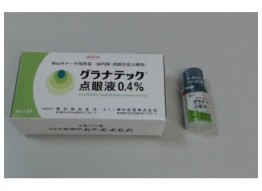Trobicin injections for bacterial infections (antibiotic, spectinomycin)
What are Trobicin injections for bacterial infections (antibiotic, spectinomycin)?
Trobicin injections incorporate spectinomycin, an aminocyclitol antibiotic that belongs to the pyranobenzodioxin class. It is derived from a soil microorganism known as Streptomyces spectabilis. The sterile spectinomycin hydrochloride in Trobicin is a pentahydrated dihydrochloride salt of spectinomycin. Its mechanism of action involves binding to the bacterial ribosome subunit, thereby disrupting the protein synthesis process in bacteria. Spectinomycin has been demonstrated in studies to be a suitable alternative for patients with allergies to penicillin or cephalosporins.
Trobicin injections are efficacious in the treatment of bacterial infections caused by gram-negative bacteria, particularly in cases of gonorrhea. This medication is recommended for managing acute gonorrheal urethritis and proctitis in males, as well as acute gonorrheal cervicitis and proctitis in females, when these conditions are caused by susceptible strains of Neisseria gonorrhoeae.
Active principles: spectinomycin hydrochloride
Amount: 5 powder vials * 2 g (solution ampoules included)
Maker: Pfizer Japan Inc., Tokyo, Japan
Indications: treatment of bacterial infections
How to use
For adults: reconstitute 1 powder vial with 3.2 ml of sterile water for injection, shake vials well after mixing. Make an intramuscular injection deep into the upper outer quadrant of the gluteal muscle. Do not make an injection in exactly the same place as the previous one. A 20-gauge needle is recommended.
Use one powder vial (2 g of active ingredient) at a time. However, if the effect is insufficient or the region is known for a high antibiotic-resistance rate, your doctor may increase the dosage up to 2 vials (4 g of active principle) at a time. In this case, it’s recommended to use 2 separate solutions and to inject them in the right and left gluteal muscles accordingly.
Contraindications: do not use for the following patients:
- children,
- pregnant or breastfeeding women,
- patients with syphilis,
- patients with atopic dermatitis.
Use with caution for elderly patients.
Important information
Patients with gonorrhea treated with this medicine should have additional tests for syphilis.
If an allergic reaction occurs, patient needs to stop using the medicine and consult with their doctor. If patient is taking any other medication or treatment, they should consult with their doctor in advance.



